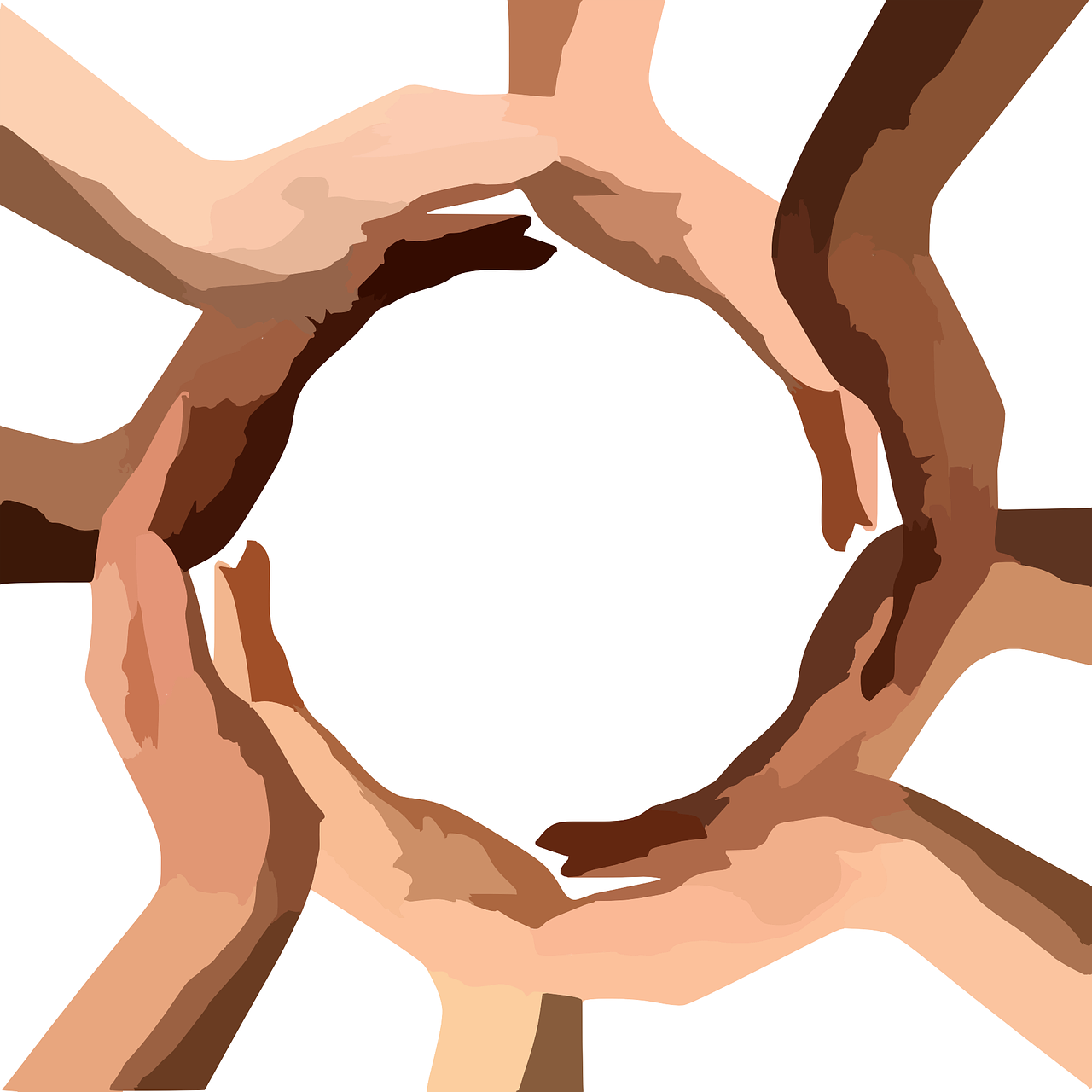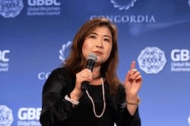#Hyperledger Women Share their Blockchain Journeys – Part III

In celebration of #HyperledgerWomen, we asked some of the many excellent women leaders in our community to share some details about their blockchain journey, including how they got started, what projects get them excited and advice they’ve received or have to share.
Read on for part II of this story where we hear from:
Hann a Zubko, Co-Founder and CEO at IntellectEU
a Zubko, Co-Founder and CEO at IntellectEU

Melanie Cutlan, Managing Director, Blockchain & Multiparty
Systems Co-Lead at Accenture

Sandra Ro, CEO, Global Blockchain Business Council
How did you get into the innovation/technology space?
Melanie Cutlan: “I was about 10 when I learned to code and have been hooked on technology ever since. I graduated from ASU with a CIS Degree in business – and I have always enjoyed the convergence of tech applied to solve business problems in new ways.
I have been in the innovation space for over 10 years, helping clients and teams adopt new technologies to rethink how they get work done. I helped to launch our Tech Masters program, which inspired business users to learn how to apply simple technologies to their day-to day-work, while running programs to make Emerging Technologies more approachable and easier to understand for the business user. I then created a team to explore how emerging technologies could disrupt our core service offerings, making the “next new” tangible for our business stakeholders and our clients.”
When and/or how did you first learn about DLT/blockchain?
Melanie: “In 2015, while running an innovation team – the Tech Garage – we were looking for ways that we could apply Blockchain to solve back office problems inside Accenture and within our scope at clients. I was immediately amazed by the possibilities and have dedicated my career to it ever since.”
Sandra Ro: “I first learned about blockchain and crypto through the FX trading community in London in late 2011. Once I really understood Satoshi Nakamoto’s bitcoin white paper (had to read a few times before the lightbulb moment), I realized it could be a paradigm shifting technology, a breakthrough that could disintermediate the financial system. Though I was initially focused on bitcoin and blockchain technology as a game-changer for the foreign markets, I eventually appreciated the potential for the technology to build alternative systems to help us develop more resilient and decentralized systems.”
What’s a blockchain project you’ve worked on that got you excited about the technology?
Hanna Zubko: “Our team at IntellectEU worked on dozens of projects across capital markets, payments, insurance, KYC and identity domains, so it’s hard to pick just one. However, one project that made me particularly excited about how blockchain technology can positively impact our lives and our planet is MyWaste, focused on incentivizing more recycling among the population. Our team worked very closely with The Studio (now part of the Fairville venture), the innovation arm of Belfius, one of Belgium’s leading retail banks, to build the MyWaste application. MyWaste introduced a MyWaste token that rewards end-users for their ecological sustainability efforts. These tokens can then be spent at local merchants on “green” products and, more importantly, make citizens aware of their waste production and incentivize more recycling and reuse. Here are some of our other blockchain projects that I am proud of: https://intellecteu.com/#case-studies.”
Melanie: “All of them! As co-lead of our Blockchain & Multiparty Systems, I am working with clients across all industries across our three priorities – Digital Identity, FS Infrastructure and Supply Chains.”
Sandra: “Before GBBC, I ran CME Group’s FX and Metals Research and Product Development, where we began quietly researching cryptocurrencies back in 2014. Ultimately, we launched a new business department within the firm dedicated to crypto and blockchain called Digitization. It was under the umbrella of Digitization at CME that we launched the Bitcoin pricing indices and subsequently, BTC futures, which trades and is the dominant USD cash-settled BTC futures today. At the time, CME Digitization was on the cutting-edge of institutional enterprise blockchain projects. During this time I had the chance to meet with over 200 start-ups and was a founding member of numerous blockchain associations, including Hyperledger. At that point, I decided to dedicate 100% of my time to blockchain for social impact, particularly widening financial access to those most excluded.”
What’s an entrenched problem you hope blockchain will help solve?
Hanna: “The problem of TRUST and resulting challenges of reconciliation and digital asset record keeping. It occurs in so many situations when enterprises interact with each other ranging from Know Your Customer (KYC) to sharing patient record data, as well as insurance claim management, IP management, and royalty payouts.”
Melanie: “If I may pick a favorite problem to solve, I am excited to see responsible and sustainable supply chains for food. Giving a face to those who grow our food, and incentivizing sustainable practices for the raw materials, without extracting the value to the larger players at the end of the supply chain. I am excited to see multi-tier supply chains coming together, providing resiliency, helping adapt to disruptions in supply chains, and ensuring a consistent supply of food to those who need it most.”
Sandra: “There is a tremendous amount of friction in many business processes in nearly every industry, government sector. A good example of such frictions is in cross-border payments, particularly for those for who can least afford to be paying high fees and wish to send small notional amounts. The blockchain and digital asset communities have the ability to affect real change in the space by bringing new solutions to the table, and forcing incumbents to innovate in ways that have a real and tangible impact on the lives of millions.”
What advice do you have for women looking to get started in this space OR what was the best advice someone gave you?
Hanna: “Get involved with Hyperledger! Blockchain is a growing space, and it has a significant need for more talented people, especially women, to join it. You may choose to contribute to one or several of Hyperledger’s open source projects. Also, the majority of Hyperledger member companies in our community are hiring. We are hiring at IntellectEU as well and would love to have you join us!”
Melanie: “By the very nature of emerging technologies, there are not experts that have been in the space much longer than you. Jump in, help shape the future of Multiparty Systems from the ground up. The ecosystem is in need of technologists, consultants, strategists, entrepreneurs within technology providers, service providers and industry constructs. There is such a need for talent. Bring your best, and take a chance on yourself to learn something new, apply something old in a new way, and have some fun reshaping the future of industries with new technologies.”
Sandra: “There are a myriad of skill sets needed in this burgeoning industry, and we need women of all kinds of backgrounds to get involved. My only suggestion is to dive in, even if you are not exactly sure of what you want to do. The sector is growing so quickly, there are opportunities being created each day, and no matter what the future may bring, this is a collaborative technology, so get stuck in, be curious, and help one another.”
Help us highlight the role of women in blockchain by tagging others in the community with #HyperledgerWomen.
